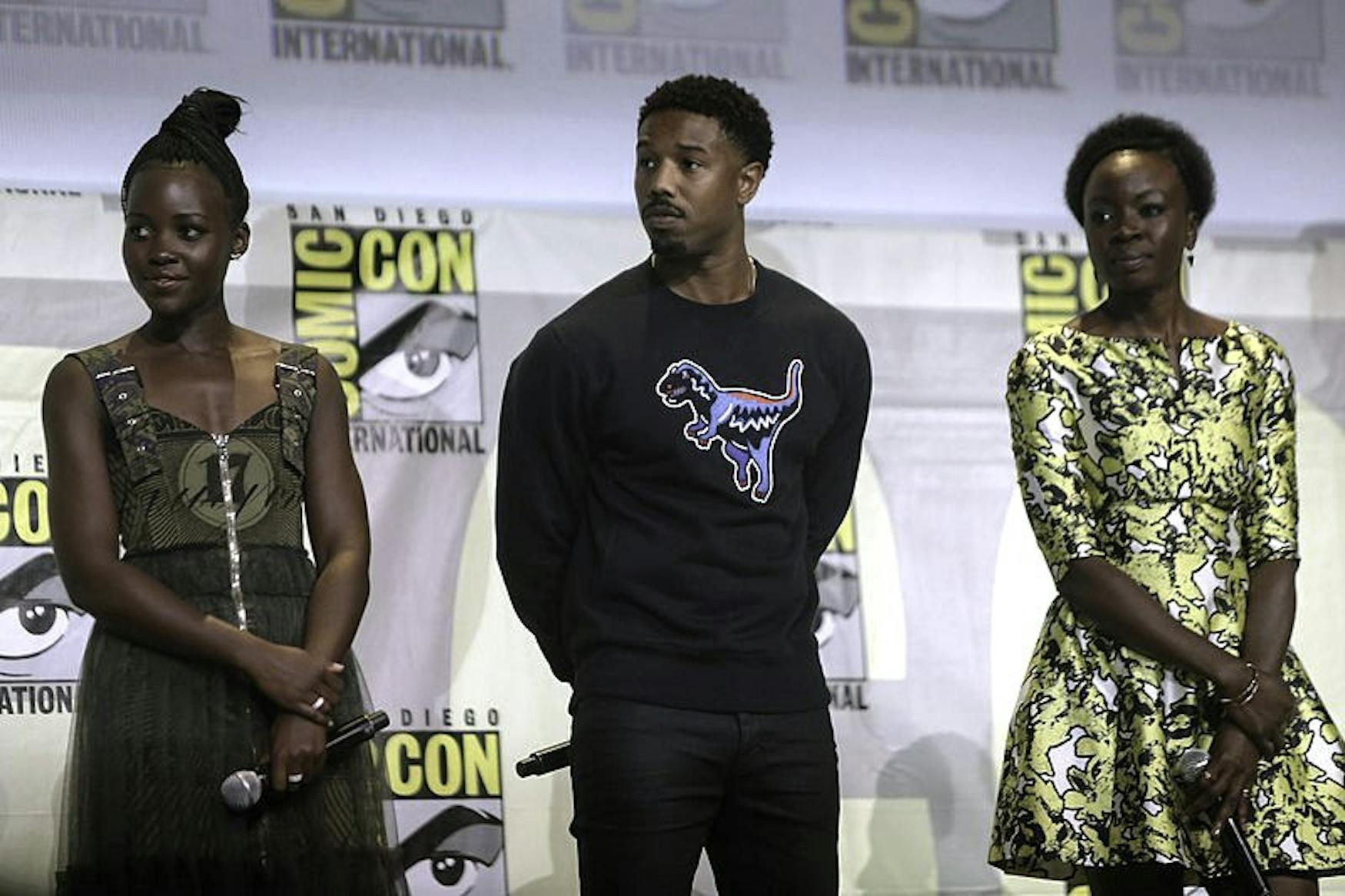'Black Panther' proves marvelous
If you have heard anyone scream “Wakanda Forever,” or seen anyone cross their arms over their chest, you are probably dealing with someone who has “Black Panther” fever.
Marvel first announced that they were going to produce a “Black Panther” movie in October 2014. However, until the film’s release this past February, some were nervous about the film’s potential for success. While there have been movies in the past with a Black lead, there has never been one with a $200 million budget. Many thought that a superhero movie with a Black lead would not perform well, especially overseas.
Were they wrong?
As of today, “Black Panther” has earned over $1 billion. The film has already earned more than any superhero movie released in 2017, including “Spider-man: Homecoming,” “Guardians of the Galaxy Vol. 2,” “Thor: Ragnarok” and “Wonder Woman.”
“Black Panther” follows T’Challa (Chadwick Boseman), the king of Wakanda, who goes by the name Black Panther and protects his country. Wakanda is a fictional African country which has never been colonized. What the world doesn’t know is that Wakanda is home to vibranium, the world’s strongest and most precious metal. Most casual Marvel fans have heard about vibranium; it is the material out of which Captain America’s shield is made and of which Vision is composed. However, Wakanda is the only place on Earth where vibranium can be found in large quantities. The Wakandans use vibranium liberally in their daily lives and, subsequently, Wakanda is the most technologically advanced nation in the world.
Marvel moviegoers have been acquainted with T’Challa in the past. His big-screen debut was in 2016’s “Captain America: Civil War.” In this film, his father, T’Chaka (John Kani), was murdered. Black Panther takes place directly after the events of “Captain America: Civil War.” T’Challa is about to take the throne, is unsure of what to do as king and relies on the help of his inner circle: his mother, Ramonda, queen of Wakanda (Angela Bassett); his younger sister, Shuri, a princess of Wakanda and gifted scientist (Letitia Wright); the general of Wakanda’s elite army, Okoye (Danai Gurira); and his ex-girlfriend, Nakia (Lupita Nyong’o), who is also a spy for Wakanda. One of the things I liked about the movie and about the character of T’Challa was that he had no problem surrounding himself with women and he allowed the women to perform their duties without making comments about their gender. Usually, in movies featuring strong female characters, a male character makes disparaging comments towards toward them; this happens to Black Widow in almost every film she appears in. Few movies are immune to this but Black Panther lets its women shine, free of sexism.
T’Challa’s world is shaken when Erik “Killmonger” Stevens (Michael B. Jordan) comes to Wakanda and plans to take the throne, using the vibranium for his own devices and revealing Wakanda’s power to the world. T’Challa faces a difficult task: he can either continue with his country’s isolationist policy or expose Wakanda’s power in order to help others.
Overall, I liked “Black Panther.” It was not as funny as other Marvel movies like “Thor: Ragnarok,” but characters made jokes occasionally. It was refreshing to see a Marvel movie where nothing about the film felt forced; everything, from clothes to makeup to dialogue, felt natural. Every character’s actions made sense within the context of the Marvel universe.
While I liked Chadwick Boseman’s portrayal of the titular Black Panther, Gurira, Jordan and Wright gave the best performances. Jordan was by far the best villain the Marvel Cinematic Universe has had since its inception. He had a goal that made him sympathetic, but the plan he concocted to reach that goal was morally wrong. There were times when I found myself liking Killmonger more than T’Challa. Okoye was not the stereotypical, taciturn female warrior that people often see in a film — she was given depth. Although she had a strong friendship with T’Challa, she made it clear that her loyalties lie with her country. As the events in the film unfolded Wright was enchanting as Shuri. Seeing a young Black woman as a world-renowned scientist was one of my favorite parts of the film. Often Black women are reduced to damaging stereotypes, more so than white women and Black men typically are. These stereotypes are inaccurate and warp other people’s perception of Black women, causing them to view Black women negatively. Many young Black girls are already looking up to Shuri.
This film is not just another Marvel installment. For many, it is the first time they get to see characters who look like them on screen and are portrayed in a positive light. Most of the time when there is a Black character in a movie, they are criminals or comic relief, or exist only to help the white protagonist. In “Black Panther,” the Black characters are complex and well-written. Their actions stem from their personality rather than from hackneyed stereotypes. The complexity of these characters can be attributed to Ryan Coogler, who directed the film and wrote most of its script. I hope with the release and success of this film that audiences will see more films that present Black people the way they deserve to be represented.




Please note All comments are eligible for publication in The Justice.